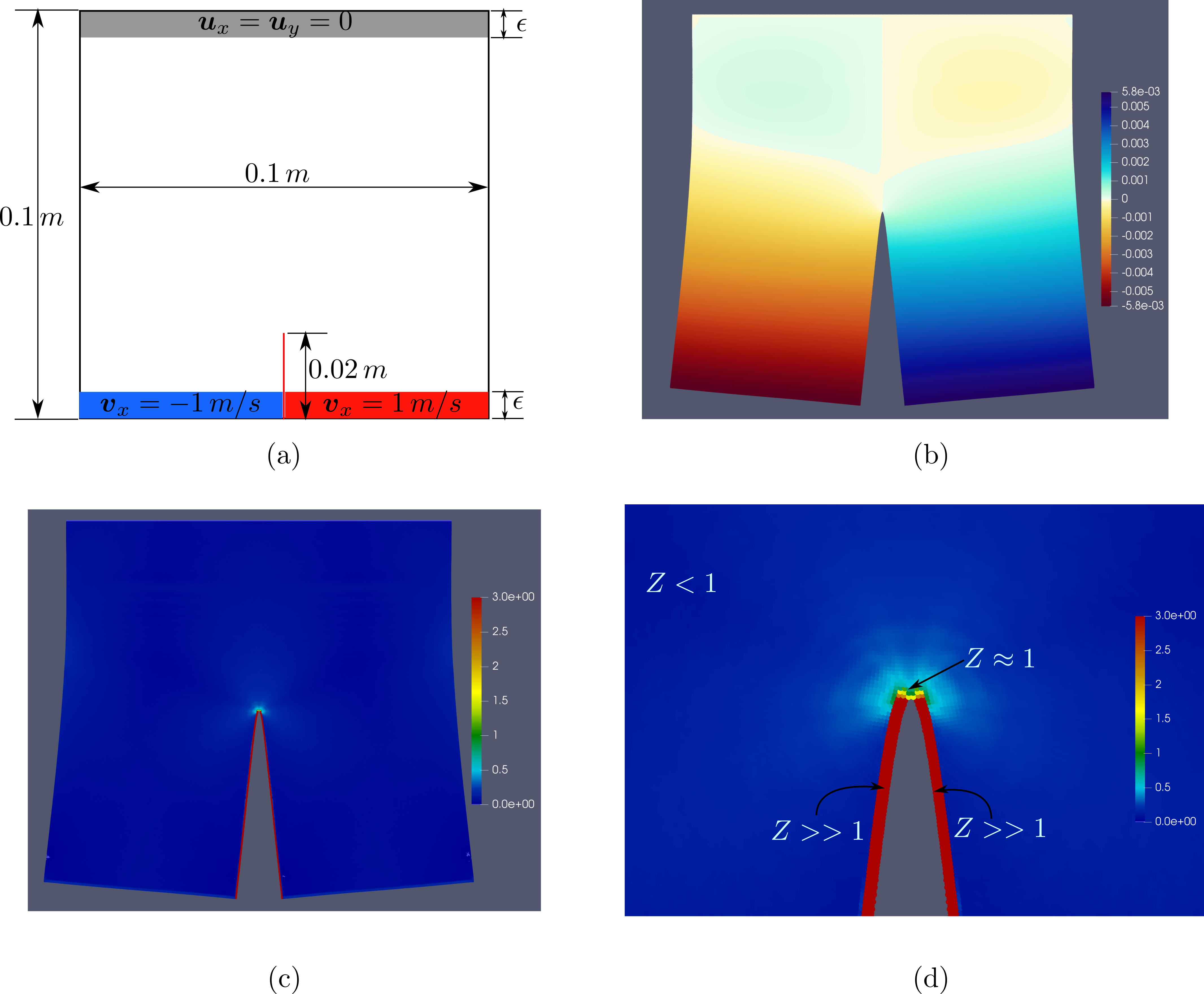Crack propagation in Glass material
-
We consider a Peridynamic simulation of Glass material using RNP Peridynamic model (Regularized Nonlinear Peridynamic) developed and studied in Lipton 2016 and Jha and Lipton 2018. RNP model is implemented in class RNPBond.
-
Units are SI units, e.g. length is in
meter, mass is inkg, force is inN, and time is insecond. -
Elastic properties of material are as follows:
- Bulk modulus
K = 25.0E+09 Pa - Poisson ratio
$\nu$ = 0.25 - Density
$\rho$ = 1200 kg/$m^3$
- Bulk modulus
-
Fracture properties of material are as follows:
- Critical energy release rate
$G_c$ = 500 J/$m^2$
- Critical energy release rate
-
For above elastic properties and fracture properties, we can compute the parameters in Peridynamic material model. This has been described in detail in RNPBond::computeParameters.
-
Material domain is rectangle with length
$L_x$ = 0.1 min x-direction and length$L_y$ = 0.1 min y-direction. We useplane-stressassumption and take thickness of material to be just1 m. -
Horizon is
$\epsilon$ = $L_y$/50and mesh size ish = $\epsilon$/4. -
Time domain
- Final time
T = 0.00014 - Time steps
N = 35000 - Output frequency of simulation data:
N/70
- Final time
-
Boundary condition
-
We fix top layer of thickness, i.e. we apply displacement boundary condition
$u_x$ = 0and$u_y$ = 0. -
We apply constant velocity (i.e. linear in time displacement) on layers at the bottom edge of domain. The thickness of layer is same as horizon
$\epsilon$. -
Value of constant velocity along x-direction is
v = 1.0 m/s. -
Displacement boundary condition is implemented in ULoading
-
See figure for setup details.
-
-
Pre-crack: We consider vertical pre-crack of length
l = 0.02 mstarting from center of bottom edge, see figure above.- Pre-crack and fracture related methods can be found in Fracture.
-
We specify
Displacement,Velocity,ForceandDamage_Zas output candidates.
Mesh
We consider uniform mesh of mesh size h = $\epsilon$/4.
- To generate uniform mesh, run Mesh with input file
input_mesh.yaml. It will producemesh.vtuwhich is needed to run the simulation, seeinput.yamlfile where mesh input details are provided.
Results
We show setup, displacement, and damage plot at time t = 0.000058 seconds. Results are from paper Lipton et al 2019.
